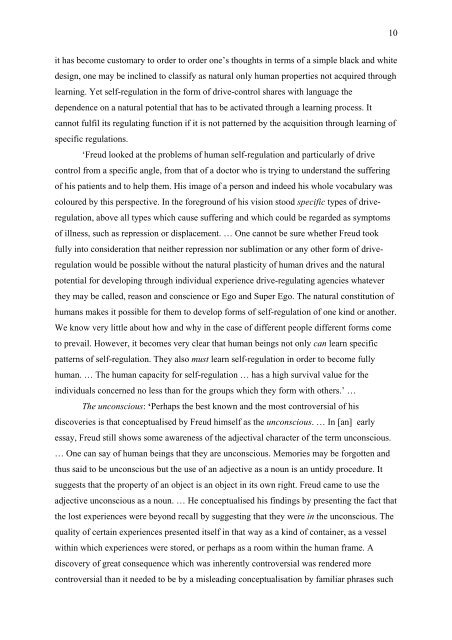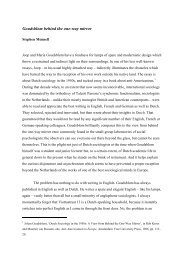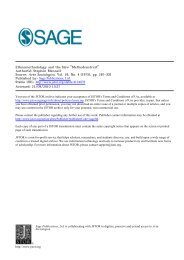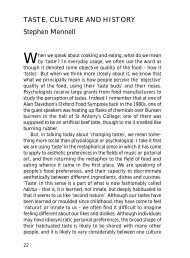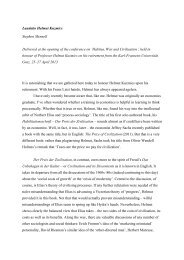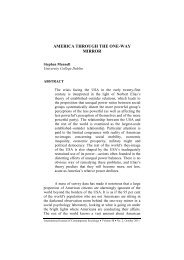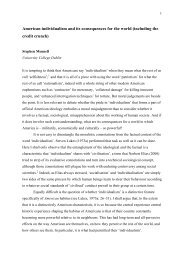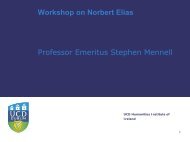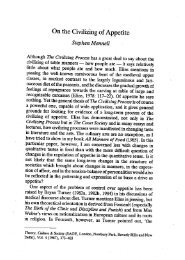paper - Stephen Mennell
paper - Stephen Mennell
paper - Stephen Mennell
Create successful ePaper yourself
Turn your PDF publications into a flip-book with our unique Google optimized e-Paper software.
10<br />
it has become customary to order to order one’s thoughts in terms of a simple black and white<br />
design, one may be inclined to classify as natural only human properties not acquired through<br />
learning. Yet self-regulation in the form of drive-control shares with language the<br />
dependence on a natural potential that has to be activated through a learning process. It<br />
cannot fulfil its regulating function if it is not patterned by the acquisition through learning of<br />
specific regulations.<br />
‘Freud looked at the problems of human self-regulation and particularly of drive<br />
control from a specific angle, from that of a doctor who is trying to understand the suffering<br />
of his patients and to help them. His image of a person and indeed his whole vocabulary was<br />
coloured by this perspective. In the foreground of his vision stood specific types of driveregulation,<br />
above all types which cause suffering and which could be regarded as symptoms<br />
of illness, such as repression or displacement. … One cannot be sure whether Freud took<br />
fully into consideration that neither repression nor sublimation or any other form of driveregulation<br />
would be possible without the natural plasticity of human drives and the natural<br />
potential for developing through individual experience drive-regulating agencies whatever<br />
they may be called, reason and conscience or Ego and Super Ego. The natural constitution of<br />
humans makes it possible for them to develop forms of self-regulation of one kind or another.<br />
We know very little about how and why in the case of different people different forms come<br />
to prevail. However, it becomes very clear that human beings not only can learn specific<br />
patterns of self-regulation. They also must learn self-regulation in order to become fully<br />
human. … The human capacity for self-regulation … has a high survival value for the<br />
individuals concerned no less than for the groups which they form with others.’ …<br />
The unconscious: ‘Perhaps the best known and the most controversial of his<br />
discoveries is that conceptualised by Freud himself as the unconscious. … In [an] early<br />
essay, Freud still shows some awareness of the adjectival character of the term unconscious.<br />
… One can say of human beings that they are unconscious. Memories may be forgotten and<br />
thus said to be unconscious but the use of an adjective as a noun is an untidy procedure. It<br />
suggests that the property of an object is an object in its own right. Freud came to use the<br />
adjective unconscious as a noun. … He conceptualised his findings by presenting the fact that<br />
the lost experiences were beyond recall by suggesting that they were in the unconscious. The<br />
quality of certain experiences presented itself in that way as a kind of container, as a vessel<br />
within which experiences were stored, or perhaps as a room within the human frame. A<br />
discovery of great consequence which was inherently controversial was rendered more<br />
controversial than it needed to be by a misleading conceptualisation by familiar phrases such


